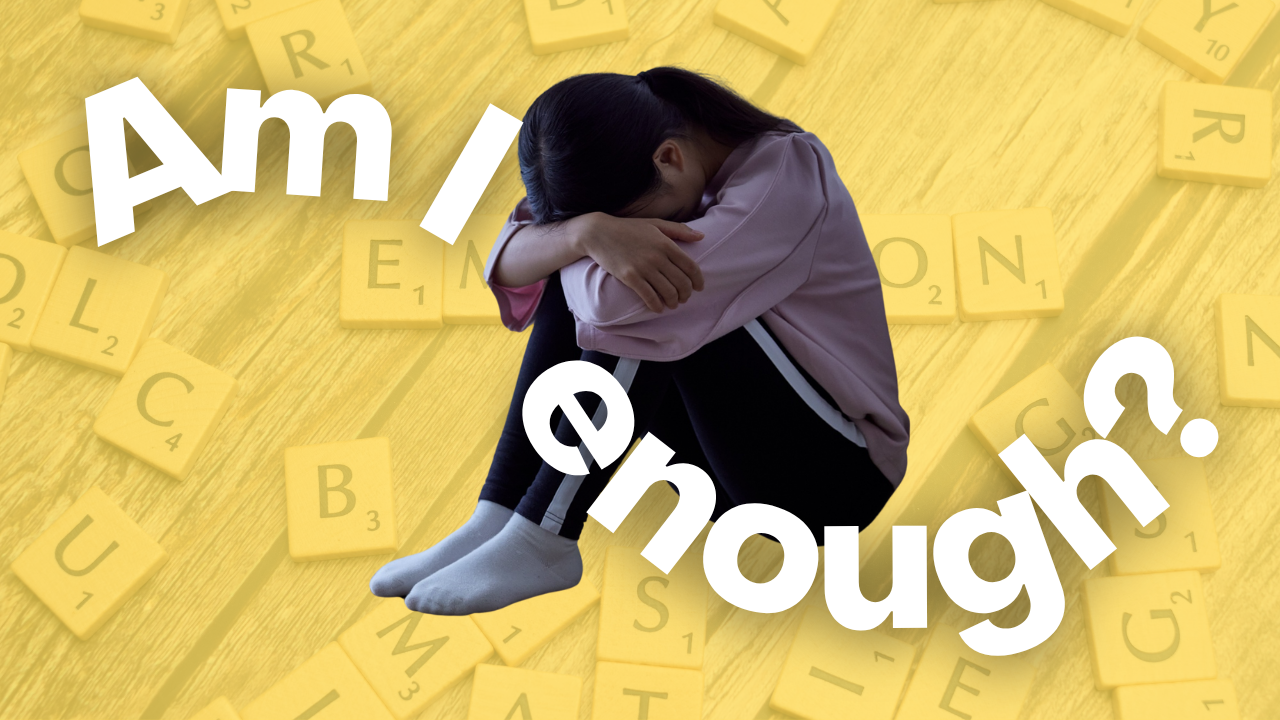Honey, I shrunk the kid (her motivation, that is).
Oct 20, 2025
“Four As and a B- in math. That’s a good report card, but… how are we going to get that math grade up?”
Has that conversation ever taken place in your home? Something like it did in mine, back in middle school. Looking back, I can now say, “Honey, I shrunk our kid.”
𝑵𝒐𝒕 𝒈𝒐𝒐𝒅 𝒆𝒏𝒐𝒖𝒈𝒉 𝒊𝒔 𝒕𝒉𝒆 𝒖𝒏𝒔𝒑𝒐𝒌𝒆𝒏 𝒎𝒆𝒔𝒔𝒂𝒈𝒆 I sent… unintentionally. It also said, “I know you can do better than that.” For those of you who see today’s problem as tomorrow’s disaster, the message also included, “How will you ever get into your first-choice college with 𝒕𝒉𝒂𝒕 on your transcript?”
Not focusing on the B- doesn’t mean you ignore it. Maybe this subject will always be challenging, or maybe there are more steps to take. That being said, the sad truth is that 𝒘𝒉𝒆𝒏 𝒚𝒐𝒖 𝒇𝒐𝒄𝒖𝒔 𝒐𝒏 𝒕𝒉𝒆 𝒕𝒉𝒊𝒏𝒈 𝒕𝒉𝒂𝒕 𝒊𝒔𝒏’𝒕 100%, 𝒚𝒐𝒖 𝒕𝒂𝒌𝒆 𝒂𝒘𝒂𝒚 𝒚𝒐𝒖𝒓 𝒄𝒉𝒊𝒍𝒅’𝒔 𝒎𝒐𝒕𝒊𝒗𝒂𝒕𝒊𝒐𝒏 𝒕𝒐 𝒘𝒐𝒓𝒌 𝒐𝒏 𝒕𝒉𝒂𝒕 𝒕𝒉𝒊𝒏𝒈. What you focus on grows, and the negativity around math (or any deficit), will grow.
How do you address the B- in a more productive way?
In my work with parents, we come back to having a conversation. 𝑨 𝒑𝒐𝒘𝒆𝒓𝒇𝒖𝒍 𝒄𝒐𝒏𝒗𝒆𝒓𝒔𝒂𝒕𝒊𝒐𝒏 𝒊𝒏𝒄𝒍𝒖𝒅𝒆𝒔 𝒑𝒐𝒘𝒆𝒓𝒇𝒖𝒍 𝒒𝒖𝒆𝒔𝒕𝒊𝒐𝒏𝒔.
These questions help your child understand her feelings and motivation. They help shift responsibility to her, and eventually to build healthy self-esteem, instead of shrinking her down.
𝑯𝒆𝒓𝒆 𝒂𝒓𝒆 𝒑𝒐𝒘𝒆𝒓𝒇𝒖𝒍 𝒒𝒖𝒆𝒔𝒕𝒊𝒐𝒏𝒔 𝒇𝒐𝒓 𝒕𝒉𝒆 ‘𝒓𝒆𝒑𝒐𝒓𝒕 𝒄𝒂𝒓𝒅’ 𝒄𝒐𝒏𝒗𝒆𝒓𝒔𝒂𝒕𝒊𝒐𝒏:
- How do you feel about your report card this marking period?
- Which grade represents a real achievement for you? Why?
- Which subject was challenging?
- Where could you use some help, and who can you ask for that help?
- What did you enjoy most? Why?
- How would you rate your overall effort? (1-10)
- Where could you have done more? What got in the way?
Look at the questions again. What do they have in common?
- 𝑻𝒉𝒆𝒚 𝒂𝒓𝒆 𝒐𝒑𝒆𝒏-𝒆𝒏𝒅𝒆𝒅 𝒒𝒖𝒆𝒔𝒕𝒊𝒐𝒏𝒔, which require thought and a deeper understanding. (When you ask a yes/no question, yes or no is all you’ll get.)
- 𝑵𝒐𝒏𝒆 𝒐𝒇 𝒕𝒉𝒆𝒔𝒆 𝒒𝒖𝒆𝒔𝒕𝒊𝒐𝒏𝒔 𝒊𝒔 𝒋𝒖𝒅𝒈𝒎𝒆𝒏𝒕𝒂𝒍 𝒐𝒓 𝒄𝒓𝒊𝒕𝒊𝒄𝒂𝒍. You’ve asked for your child’s thoughts on her performance and effort.
- When asking open-ended questions, 𝒊𝒕’𝒔 𝒚𝒐𝒖𝒓 𝒄𝒉𝒊𝒍𝒅 𝒘𝒉𝒐 𝒅𝒐𝒆𝒔 𝒕𝒉𝒆 𝒕𝒉𝒊𝒏𝒌𝒊𝒏𝒈 𝒂𝒏𝒅 𝒔𝒆𝒍𝒇-𝒆𝒙𝒂𝒎𝒊𝒏𝒂𝒕𝒊𝒐𝒏. You are not speaking for her.
These powerful questions, and your child’s answers, give her the chance to become a problem-solver. When you step back from offering solutions, 𝒔𝒉𝒆 𝒈𝒓𝒂𝒅𝒖𝒂𝒍𝒍𝒚 𝒍𝒆𝒂𝒓𝒏𝒔 𝒕𝒐 𝒕𝒂𝒌𝒆 𝒎𝒐𝒓𝒆 𝒓𝒆𝒔𝒑𝒐𝒏𝒔𝒊𝒃𝒊𝒍𝒊𝒕𝒚 𝒇𝒐𝒓 𝒉𝒆𝒓𝒔𝒆𝒍𝒇, 𝒉𝒆𝒓 𝒅𝒆𝒄𝒊𝒔𝒊𝒐𝒏𝒔 𝒂𝒏𝒅 𝒉𝒆𝒓 𝒍𝒆𝒂𝒓𝒏𝒊𝒏𝒈.
As for the B- in math, these questions help her find her own answers to that problem, if indeed it is a problem. It’s possible the B- is the best grade she’ll earn in that subject. (If so, the problem becomes yours, not hers. Something to think about…)
𝑳𝒊𝒔𝒕𝒆𝒏 𝒎𝒐𝒓𝒆. 𝑺𝒂𝒚 𝒍𝒆𝒔𝒔. 𝑨𝒅𝒅 𝒑𝒐𝒘𝒆𝒓𝒇𝒖𝒍 𝒒𝒖𝒆𝒔𝒕𝒊𝒐𝒏𝒔.
Put an end to ‘not good enough’ and shrinking the kid.
Stay connected with news and updates!
Join our mailing list to receive a free communication guide (10 Things to Avoid Saying to Your Teen) and the latest news and updates from our team.
Don't worry, your information will not be shared.
We hate SPAM. We will never sell your information, for any reason.

